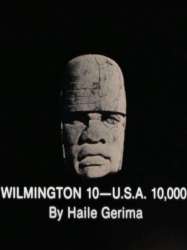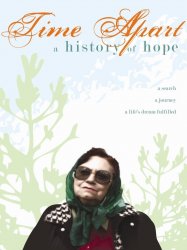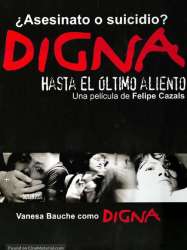Coração do Brasil is a brésilien film of genre Documentary
Coração do Brasil (2013)

If you like this film, let us know!
- Infos
- Casting
- Technical infos
- Photos
- Videos
- Film quotes
- Characters
- Music
- Awards
Coração do Brasil is a 2013 Brazilian documentary film directed by Daniel Solá Santiago and released on April 19, 2013.
The film takes place fifty years after the shipment of the Villas-Bôas brothers to demarcate the geographical center of Brazil, three participants of this journey retake the same path, revisiting villages, reuniting characters and noting the dramatic evolution of Indigenous status over the years.
Comments
Leave comment :
Suggestions of similar film to Coração do Brasil
There are 8976 with the same cinematographic genres, 2902 films with the same themes (including 498 films with the same 2 themes than Coração do Brasil), to have finally 70 suggestions of similar films.If you liked Coração do Brasil, you will probably like those similar films :

Freedom on My Mind (1994)
, 1h45Origin USA
Genres Documentary
Themes Films about racism, Documentary films about racism, Documentary films about law, Documentary films about historical events, Documentaire sur une personnalité, Documentary films about politics, Political films
Rating79%





In 1961, Mississippi was a virtual South African enclave within the United States. Everything was segregated. There were virtually no black voters. Bob Moses entered the state and the Mississippi Voter Registration Project began. The first black farmer who attempted to register was fatally shot by a Mississippi State Representative. But four years later, the registration was open. By 1990, Mississippi had more elected black officials than any other state in the country. As the New York Times said in their review of the film, "a handful of young people, black and white, believed they could change history. And did."

Goodbye Holland (2004)
, 1h30Directed by Willy Lindwer
Genres Documentary
Themes Films about racism, Films about religion, Documentary films about racism, Documentary films about law, Documentary films about war, Documentary films about historical events, Documentaire sur une personnalité, Documentary films about religion, Political films, Films about Jews and Judaism, Documentary films about World War II

Directed by Hailé Gerima
Origin USA
Genres Documentary
Themes Films about racism, Documentary films about racism, Documentary films about law, Documentary films about historical events, Documentaire sur une personnalité
1978's Wilmington 10—USA 10,000 examined the impact of racism and the short-comings of the criminal justice system by examining the history of the nine black men and one white woman who became known as the "Wilmington Ten."

Anne Frank Remembered (1995)
, 1h57Genres Drama, Documentary
Themes Films about children, Films about racism, Films about religion, Documentary films about racism, Documentary films about law, Documentary films about war, Documentary films about historical events, Documentaire sur une personnalité, Documentary films about religion, Political films, Films about Jews and Judaism, Documentary films about World War II
Actors Kenneth Branagh, Glenn Close, Joely Richardson
Rating80%






Stolen (2009)
, 1h18Directed by Dan Fallshaw, Violeta Ayala
Genres Documentary
Themes Films set in Africa, Films about slavery, Documentary films about law, Documentaire sur une personnalité
Rating67%





 , 43minutes
, 43minutesOrigin Canada
Genres Documentary
Themes Films about racism, Films about religion, Documentary films about racism, Documentary films about law, Documentary films about war, Documentary films about historical events, Documentaire sur une personnalité, Documentary films about religion, Political films, Films about Jews and Judaism, Documentary films about World War II
A search, a journey, a life’s dream fulfilled. Seventy-seven-year-old Holocaust survivor Alice Zuckerman never gave up hope she would find her family, lost after the Second World War. When scribbled notes on torn paper reveal clues to her past, Alice and her family reunite. Alice takes us on a moving journey through old Eastern Europe, a world that seemingly disappeared through Nazism and communism. Yet the world of Alice’s childhood remains vital in the hearts of the people she meets along the way.

To Shoot an Elephant (2009)
, 1h52Genres Documentary
Themes Films set in Africa, Films about religion, Documentary films about law, Documentary films about war, Documentary films about historical events, Documentaire sur une personnalité, Documentary films about politics, Documentary films about religion, Political films, Films about Jews and Judaism
Rating78%





 , 1h58
, 1h58Directed by Felipe Cazals
Genres Documentary
Themes Documentary films about law, Documentaire sur une personnalité, Documentary films about politics, Political films, Documentary films about law enforcement
Actors Vanessa Bauche
Rating64%





 , 1h3
, 1h3Directed by John Borowski
Origin USA
Genres Documentary, Historical, Crime
Themes Prison films, Documentary films about law, Documentaire sur une personnalité, Serial killer films, Films about capital punishment, Documentary films about law enforcement
Actors Tony Jay
Rating62%





 Connection
Connection